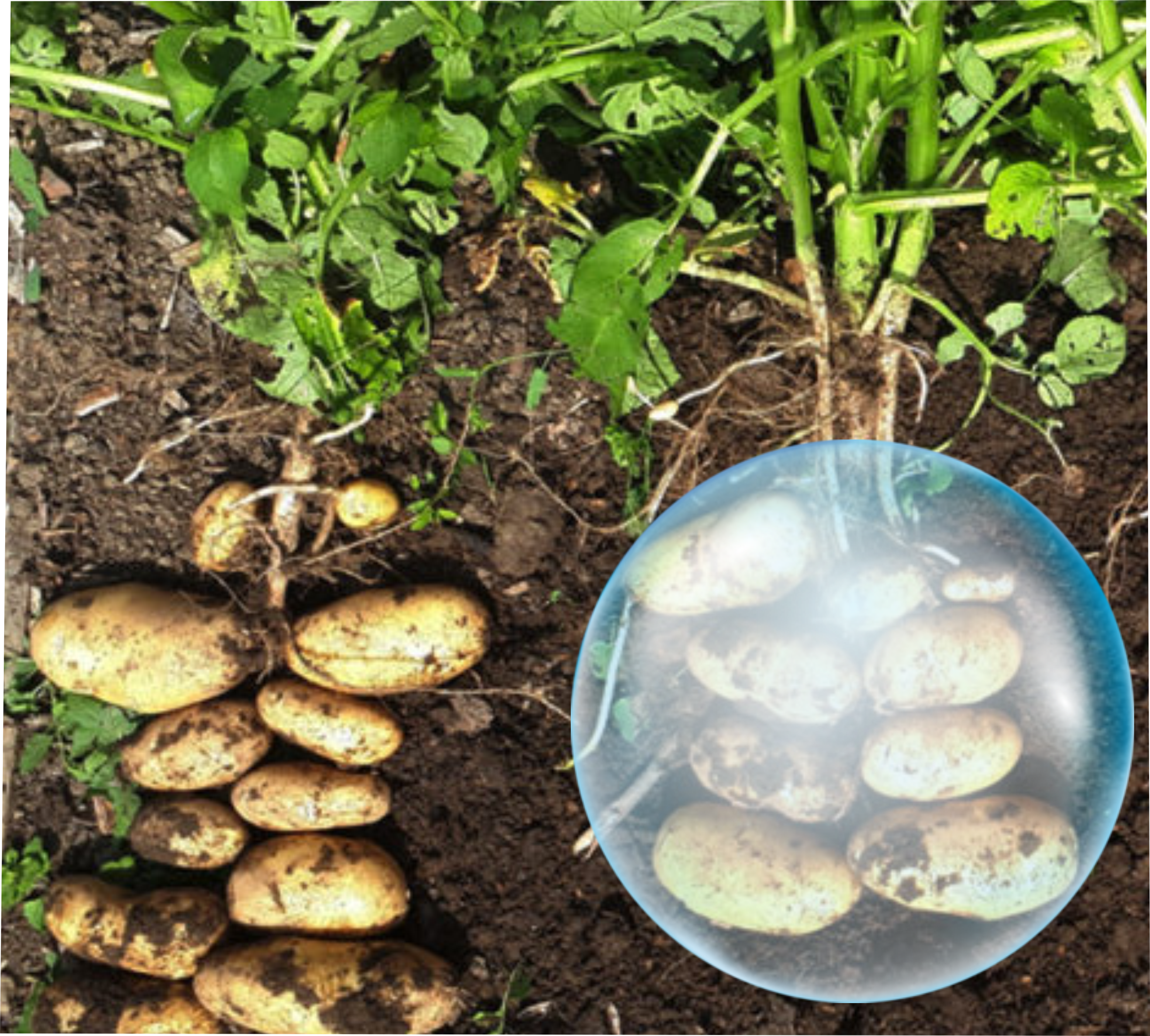ELICITEX For Potato Growing
Benefits of Use for Potato Growing
ELICITEX induces disease resistance in Solanum tuberosum L. (potato) by boosting the plants innate and adaptive immunity, but also have beneficial effects on crop nutritional density, improvements in organoleptic properties including taste (flavour), smell (odour) and prolongs potato endodormancy and storage, reducing crop waste.
This strategy has been effective against Soft Rot Pectobacteriaceae (SRP) bacteria (Dickeya, Pectobacterium, and Musicola genera), are prominent plant pathogens causing destructive soft rot diseases in potato. Their virulence mechanisms involve the secretion of pectinolytic enzymes including pectinases and cellulases, leading to tissue maceration and devastating disease development.
In vitro, in planta and in-field studies demonstrate that this strategy is able to elicit effective endogenous potato defence activity against the oomycete (omycota) Phytophtora infestans that causes late potato blight and the fungal pathogen Alternaria solani that causes early potato blight.
The potato tuber, a swollen underground stem resulting from the enlargement of the subapical underground stolon is a significant staple global food crop. Post-harvest phase of potato tuber dormancy and sprouting are essential in determining their economic value. Unexpected sprouting during potato storage can lead to potato losses. ELICITEX prolongs the dormancy period of the lateral bud (LB) meristems (“eyes”) (tuber buds) and delay sprouting to achieve safe storage with bud control, freshness preservation, and loss reduction. Dormancy is categorised into three distinct types: endodormancy, paradormancy and ecodormancy. Endodormancy is controlled by internal physiological factors within the tuber itself. During endodormancy, growth inhibitors within the potato prevent the eyes (buds) from sprouting and the tuber is not responsive to external environmental cues that typically stimulate sprouting. Endodormancy must be broken internally before the tuber can respond to sprouting conditions. Paradormancy is controlled by factors external to the dormant part, but internal to the plant. In potatoes, this can be due to the influence of other parts of the plant that are still attached, such as the stolon or the main stem, which may release chemical signals that inhibit the sprouting of the tuber. Ecodormancy occurs when external environmental conditions are not suitable for growth. Unlike internal endodormancy, ecodormancy is caused by external factors such as temperature, light, or nutrient availability. ELICITEX prolongs endodormancy by inducing endogenous sprout growth inhibitors.

MAVEN® TRIPLE P® and ELICITEX MIST® are registered trademarks owned by Maven International Limited
